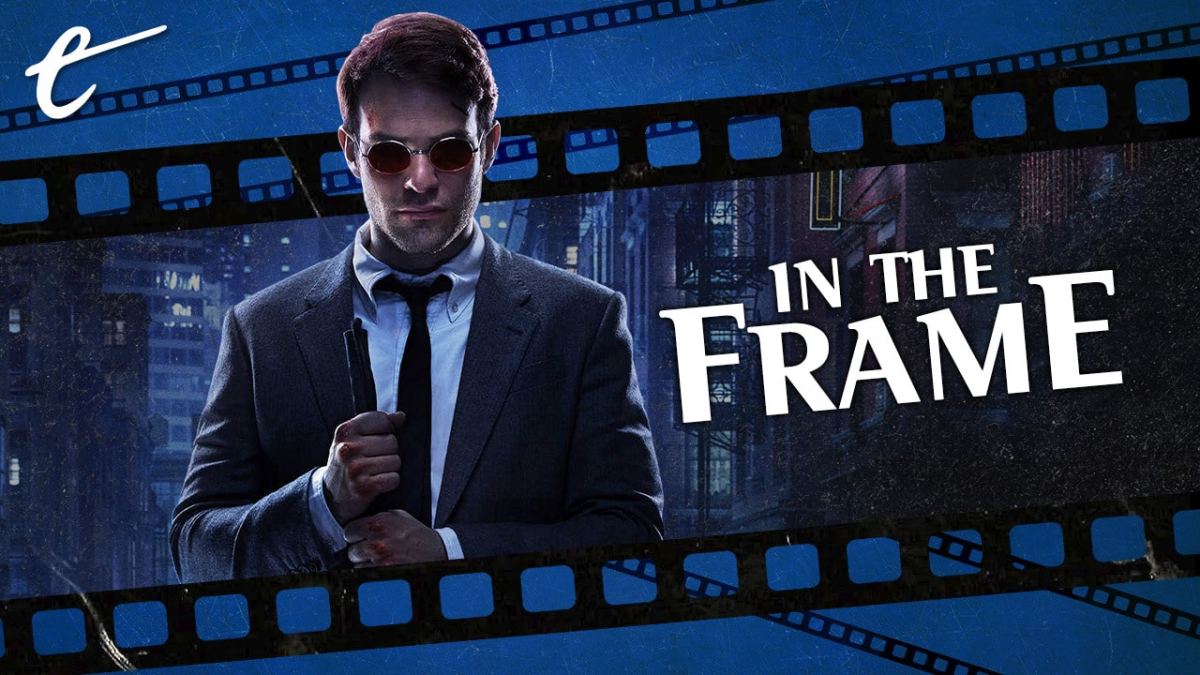With WandaVision arriving on Disney+, it seems like an appropriate opportunity to look back at Marvel’s first foray into a live-action streaming series.
The first season of Daredevil arrived on Netflix as something of a breath of fresh air in April 2015, a few weeks before Avengers: Age of Ultron seemed to mark the boundaries of the Marvel Cinematic Universe. Critics welcomed the arrival of the series. Brian Lowry described the show’s aesthetic as “liberating.” Mark Hughes argued that it was “one of the greatest live-action superhero origin stories ever made.”
Of course, Netflix’s corner of the Marvel Cinematic Universe was always a satellite state, with only a few fleeting references to “the Incident” from The Avengers or awkward “casual” references to the characters appearing in Marvel’s billion-dollar movies. In the years that followed, Netflix’s shows would slip in quality, leading to clumsy messes like Iron Fist, The Defenders, and The Punisher. Even later seasons of Daredevil and Jessica Jones struggled to live up to their promising debuts.
Still, even half a decade later, the first season of Daredevil holds up well. In part, this is because the series operates at the fringe of the shared universe, free of the demands for aesthetic consistency and character crossover that largely confined Agents of S.H.I.E.L.D. and Agent Carter to the house style. While the first season of Daredevil was never as heavily stylized or adventurous as something like Legion, it operates in a completely different register to the more mainstream MCU.
Much has been made of the use of “genre” within the MCU. Evangeline Lilly described Ant Man as “a heist film,” and the Russo Brothers insisted that Captain America: The Winter Soldier “owes a big debt” to Three Days of the Condor. However, outside of exceptions like Guardians of the Galaxy and Thor: Ragnarok, a lot of the Marvel films are quite visually and aurally similar. Lucrecia Martel declined the chance to direct Black Widow when she was told the studio would take care of the action scenes.

The first season of Daredevil is much more of its own thing. From the teaser of the first episode, Daredevil pushes back on the company’s “house style” as Matt Murdock (Charlie Cox) is shown brutally and viscerally attacking a criminal. Blood splatters. Skin makes contact with skin. Matt seems to enjoy himself. It’s visceral and upsetting. Showrunner Steven DeKnight took advantage of the freedom afforded by Netflix, explaining, “I don’t think you could do it on network television.”
Daredevil embraces a more heightened and stylized approach than many of the films in the MCU, wearing its influences on its sleeves. The second episode features a stunning five-minute one-take fight scene that remains the best action sequence in a Marvel Studios production. “Yeah, we were very much influenced by Oldboy and The Raid and The Raid 2,” conceded DeKnight of the sequence. It’s brutal and it’s bloody in a way that superhero action is rarely allowed to be.
Daredevil unfolds in a heightened reality plucked from the cultural memory of 1970s New York. After all, the season hinges on an evil plot by Wilson Fisk (Vincent D’Onofrio) to gentrify Hell’s Kitchen, which is inherently absurd to anybody who has visited the neighborhood in the past few decades. The ungentrified version of Hell’s Kitchen presented in Daredevil is as imaginary as Asgard from Thor or Knowhere from Guardians of the Galaxy.
“We really wanted to take our cue from [films like] The French Connection, Dog Day Afternoon, Taxi Driver,” stated DeKnight of the show’s general mood and style. DeKnight also confirmed that the look of the show was “very much influenced” by veteran Daredevil artist Alex Maleev. The show shoots rain like Maleev draws it. The show has a strong and unifying texture. However, the first season of Daredevil stands out for more than just its distinctive visual style.
There’s a credible argument to be made that the first season of Jessica Jones deals with weightier and more timely subject matter, and in a more interesting way, than the first season of Daredevil. However, the first season of Daredevil benefits from a much tighter structure than the other Netflix Marvel shows. The series still suffers slightly from “the Netflix bloat,” particularly in early stretches, but the season has a consistent arc and trajectory that sustains it.

It helps that Daredevil cannily borrows the structure that Christopher Nolan employed on Batman Begins, which remains the best superhero origin ever put to film. That template is so robust that Daredevil stretches it over 13 episodes. It lifts several cues directly: the non-linear childhood flashbacks, a vigilante who announces himself to criminals with a daring raid on the docks, a vaguely Eastern death cult smuggling a weapon of mass destruction into a major metropolitan area.
Daredevil does more than simply copy other superhero properties. The show often gestures towards prestige television. Under DeKnight’s supervision, the writers would “edge towards The Wire instead of anything else.” If The Wire was “a novel for television,” maybe Daredevil was “a graphic novel for streaming.” This influence was most obvious in the subplot focusing on reporter Ben Urich (Vondie Curtis‑Hall) and the casting of The Wire veteran Domenick Lombardozzi as Wilson Fisk’s father.
Of course, the show doesn’t entirely succeed on these terms, particularly in its finale. However, the language of prestige television allows Daredevil to grapple with themes largely alien to the MCU. Through Fisk and Murdock, the first season interrogated complex ideas of masculinity in a way traditionally reserved for antiheroes on shows like The Sopranos and Breaking Bad. It explored these themes in a way that an Iron Man or a Captain America movie never could.
This is most obvious with Matt Murdock’s Catholicism. It is an essential attribute of the character, dating back to Frank Miller’s iconic reinvention of the hero. However, the MCU has largely avoided tackling religious themes. Even Thor, a literal “god of thunder,” is repeatedly stated to be a sufficiently advanced alien rather than an actual deity, even though the latter would offer much greater storytelling potential. As such, Murdock’s Catholicism is a big deal.
In particular, Daredevil builds Murdock’s beliefs into the classic superhero duality. After all, Catholic morality is about squaring base desires of the flesh with the ambitions of the soul. “An understanding of virtue as the victory of the will over sinful desires of the body leads to a repressive kind of self-control,” argued Shaji George Kochuthara. “This view leads to seeing desires of our body as enemies of our real self, and thus to dualistic thinking.” Murdock knows this well.

Kochuthara was writing about sexuality, but Murdock’s sinful desire is for violence. The violence is in him. “I need you to know why I’m hurting you,” he warns a goon in the second episode, while trying to find a lost child. “It’s not just the boy. I’m doing this because I enjoy it.” As he wrestles over what to do about Fisk, Father Lantom (Peter McRobbie) asks, “Are you struggling with the fact that you don’t want to kill this man… but have to? Or that you don’t have to kill him… but want to?”
There’s a palpable tension that runs through the first season of Daredevil about whether Murdock is beating up criminals at night to help the city or to help himself, and the show leaves the question lingering. It helps that the show has two phenomenal leads in Charlie Cox and Vincent D’Onofrio, both of whom suggest an interiority that elevates the pulpy material without ever condescending to it. Cox is as perfect a leading man as Marvel ever cast, even if later seasons squandered his talent.
The arrival of WandaVision ushers in a new era for the MCU. Trailers suggest a show that will be visually and tonally distinct from a lot of what came before, and that is welcome after 12 or so years. Similarly, with Disney+ adding a Star channel for adult-friendly content and Kevin Feige insisting that Deadpool 3 will be R-rated and in the MCU (eventually), the studio seems willing to try new things. Hopefully, that involves acknowledging some past successes at the periphery of the brand.
The first season of Daredevil exists in a perfect space, unapologetically heightened and unreservedly ambitious. It is completely unashamed of its roots as a superhero story, but it doesn’t treat those roots as an excuse to avoid big ideas. It’s fun, it’s clever, it’s distinct. More than five years later, it still stands out from the crowd.







Published: Jan 15, 2021 11:00 am